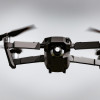
In the era of unprecedented technological advancements, artificial intelligence (AI) has become pivotal in different sectors, with warfare being one of them. The article delves into the complexities and ethical implications brought about by the deployment of AI in military strategies. It investigates the moral aspects and consequences of entrusting machines with human life and autonomous decision-making.
The Rise of Artificial Intelligence in Military
The development and integration of AI in military operations have accelerated over the past decade, revolutionizing strategies used in warfare. It encompasses systems or software able to perform tasks that would typically necessitate human intelligence. However, as these AI systems amplify warfare efficiency, they usher a slew of ethical dilemmas. It includes issues around decision-making capacity, moral accountability, and the value we attribute to human life.
AI in Warfare: A Double-Edged Sword
AI's integration in warfare can lead to significant strategic advantages, including real-time decision-making, enhanced surveillance, and increased precision in strikes. However, the other edge of the sword brings with it potential ramifications. One of the primary concerns is the potential for an AI arms race, which could significantly escalate tensions and contribute to global instability. Additionally, the risk of AI systems being misused or hacked poses threats that can transcend borders and impact civilians.
Autonomous Weapons: Consequences of AI Solitary Decision-Making
Lethal Autonomous Weapons Systems (LAWS), enabled by AI, can make decisions without human intervention. Whether it's identifying targets or executing attacks, these autonomous systems create ethical concerns, particularly over accountability. There are also concerns relating to the potential for violations of international humanitarian law, given the limits of AI in distinguishing between combatants and non-combatants or making proportionality assessments in attacks.
The Question of Accountability
One of the most pressing ethical implications of using AI in warfare is the question of accountability. Who becomes responsible when an AI system causes unintended collateral damage or violates international law? This issue demands attention as AI decision-making grows more complex and autonomous, driving a wedge between human oversight and robotic autonomy.
Human Dignity and AI
The value of human life and the preservation of human dignity are other major ethical aspects in the debate on AI in warfare. Can machines be trusted with life-taking decisions? This spawns questions about the value attributed to human life when decisions of lethal magnitude are consigned to machines lacking human empathy and understanding.
AI and Asymmetrical Warfare
The integration of AI in military strategies also exacerbates the risks of asymmetrical warfare, where one party could substantially outnumber or outpower the other. AI-powered warfare could widen the gap between technologically advanced militaries and less sophisticated ones, thereby escalating the potential for conflicts.
Navigating the Ethical Landscape of AI in Warfare
Addressing the ethical implications of AI in warfare requires comprehensive multilateral efforts, including setting international regulations and norms. This new age in warfare prompts a re-evaluation of existing legal and ethical frameworks to ensure accountability and protect human dignity, even on the battlefield.
















